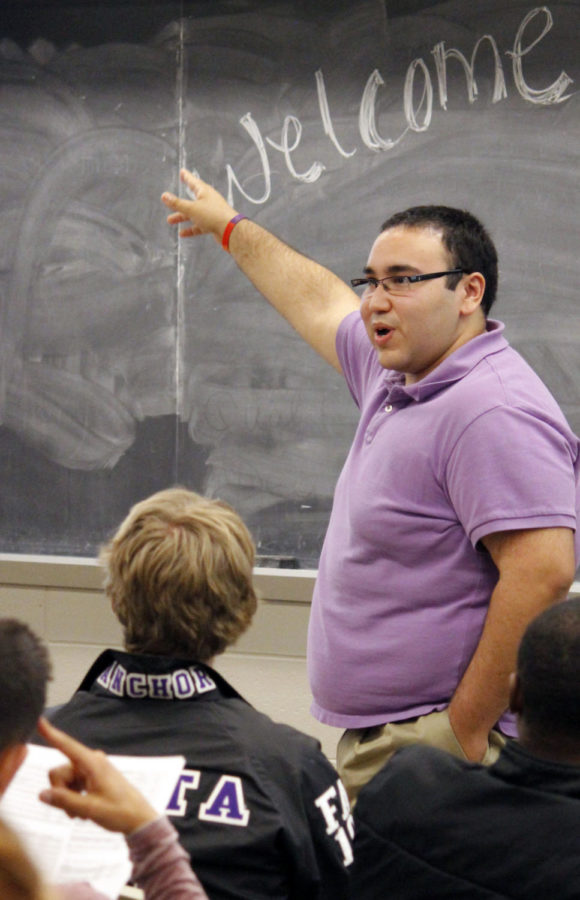Greek community discusses adding LGBT programs
October 9, 2013
The greek community took a survey in the spring 2013 semester about their acceptance of lesbian, gay bisexual, transgender and questioning students, and were presented the results at the Greek Community Safe Chapter Town Hall Meeting on Tuesday.
More than half of the greek community had responded to the survey.
Thomas Arce, graduate assistant in educational leadership and policy studies, conducted this survey and compiled the data to present to the greek community. Arce works in the Office of Greek Affairs as the diversity liaison.
The survey asked questions to gauge the attitudes that students have about LGBTQ individuals, Arce said. Questions on the survey asked about opinions related to LGBTQ students in the greek community.
Students were split into groups to discuss the results and brainstorm how LGBTQ awareness could be raised in the greek community.
“We want the students in the community to really drive where we go next,” said Katy Cran, assistant director of Greek Affairs. Cran said college is a great time to explore different conversations, and with the increased enrollment and diversity in the greek community, now is a pinnacle time to bring up LGBTQ awareness.
The survey found that 19.1 percent of greek chapters said they have a member who identifies as LGBTQ.
When students were asked about their general acceptance of a potential LGBTQ members, more than 80 percent of both fraternities and sororities said they would accept that member.
Acceptance of same sex affection or a date at greek social events was accepted by 66.9 percent of the greek community, with 58.1 percent of fraternity members accepting and 75 percent of sorority members accepting.
Only 53.78 percent of fraternity members surveyed said they accept same sex relationships between men.
“The whole purpose is that we educate the greek community and the chapters themselves,” Arce said. The survey and presentation are part of a program called the Safe Chapter Initiative.
Cran said the Greek Community Safe Chapter Town Hall Meeting was advertised to greek community leaders and at all meetings with people in the greek community.
“The next step is to spread awareness, so we developed the safe chapter program for chapters that want to be a part of this,” Arce said. The Safe Chapter Initiative is a presentation Arce designed to mirror the Safe Zone 101 training that Brad Freihoefer, director of the LGBT Student Services office, leads for faculty and staff.
Two chapters, a fraternity and a sorority, participated in the Safe Chapter Initiative last spring to test its effectiveness, Arce said.
What drew Cran’s attention was that 48.2 percent of those surveyed said they were willing to become more aware of LGBTQ. Because of that result, Cran said the Office of Greek Affairs felt their next step was to address awareness.
“We decided that this would be a great opportunity for us to just bring it to the forefront of some conversation within the greek community,” Cran said.
In conversations about diversity in the greek community, the conversation about the LGBTQ community was minimal, Cran said.
Students suggested adding programs to chapter meetings to make it easier for members to receive the training and having people tell their stories to bring more of an emotional connection to the topic.
Mary Horton, member of Kappa Alpha Theta and senior in biology, said she likes the idea of having programs available for students who want to learn more about the LGBTQ community.
“I think it’s really important to encourage the conversation because that’s lacking,” Horton said.
Horton said she thinks the topic should be talked about as individuals and as a chapter and that having a panel would be really great.
Benjamin Peterson, member of Sigma Lambda Beta and senior in early childhood education, said having people who can come to chapter meetings would be more effective than providing a program that students would have to seek out.
“When you hear from peers, it’s more impactful,” Peterson said.

















